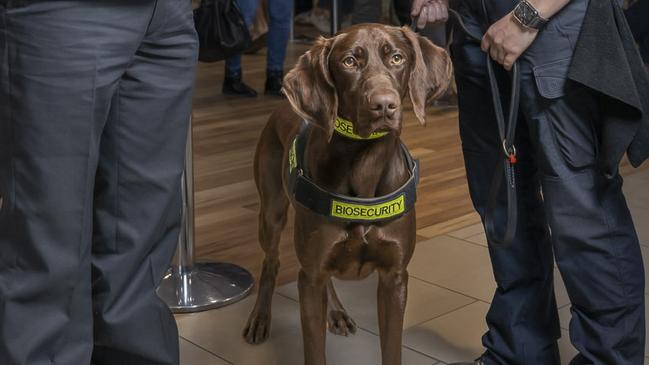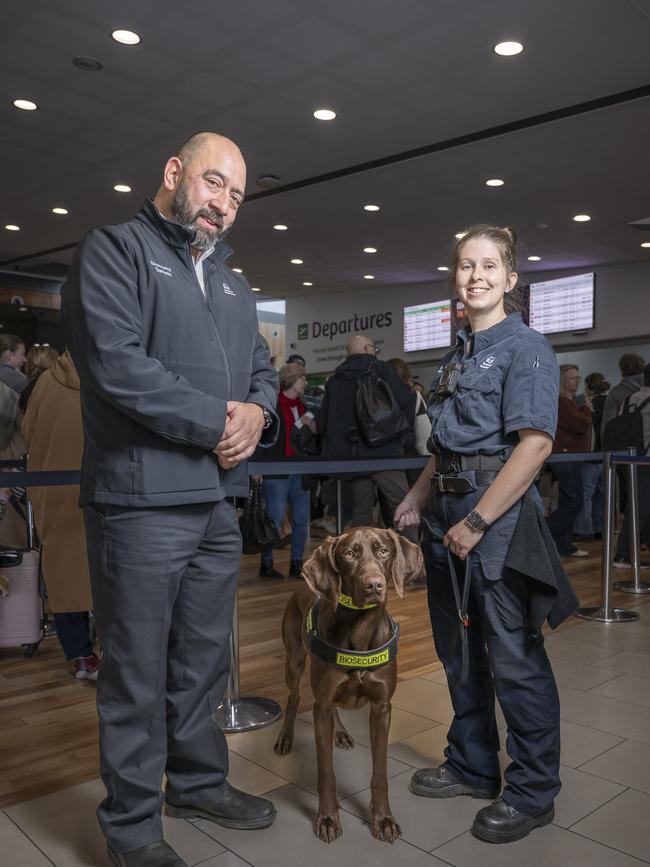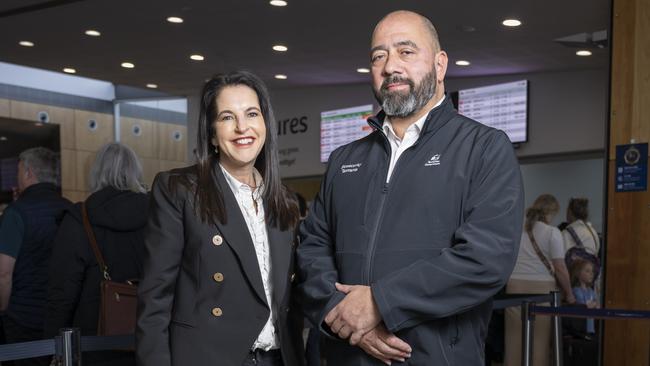Dogs on the job: More funding for critical border work
The state’s Biosecurity efforts are “critically important” for preventing unwanted pests and diseases. How a funding boost will help Toby and his colleagues protect our borders:

Tasmania
Don't miss out on the headlines from Tasmania. Followed categories will be added to My News.
Tobert, also known as Toby, the German short-haired pointer has a very important job protecting Tasmania’s borders from unwanted pests and diseases that could have a devastating impact on the agricultural sector.
Detector dog handler Lillian Burbury said dogs like Toby intercept some “interesting” items across Tasmania’s main biosecurity borders — airports, the Spirit of Tasmania, and Cruise ships.
“We get some interesting iterations of fruit and vegetables,” Dr Burbury said.

The trained veterinarian who is on a gap year working in biosecurity said she has seen boxes of mangoes and 4 kilograms of oranges intercepted by biosecurity dogs. She has even seen people who have “cleaned out their fridge” and packed it.
The Tasmanian government’s 2024-25 budget includes more than $12 million for Biosecurity Tasmania including a $7.9 million boost for frontline biosecurity services and $3 million over four years to strengthen biosecurity resources and expertise.
Primary resources minister Jane Howlett said the money would also assist in implementing the recommendations of the Centre of Excellence for Biosecurity Risk Analysis, which conducted an independent review into four biosecurity pathways to assess Tasmania’s effectiveness in mitigating biosecurity risks.
“Biosecurity is vitally important to the Tasmanian agricultural sector and what this investment will do is see dogs like Toby protect us,” Ms Howlett said.
She said it was critical for Tasmania to remain fruit fly free, and to prevent the introduction of Varroa mite.

Biosecurity Tasmania Director Biosecurity Operations Branch Justin Helmich said the investment would allow Biosecurity Tasmania to deal with a number of risks identified in the risk analysis, including improvements to the detector dog unit and research into appropriate prescriptions to ensure that biosecurity risks don’t enter Tasmania.
“An ounce of prevention is worth a pound of cure,” he said.
“It really is an important thing to stop them from entering rather than have to deal with them once they enter.”
Two new senior biosecurity inspectors and two senior biosecurity officers will be employed through the funding boost as well as a stakeholder engagement officer.
Mr Helmich said there are more than 100 operational staff and 10 detector dogs employed in the state and they would be looking at expanding the fleet of dogs as well.
“Having more biosecurity inspectors at our airports and at our ports making sure that our borders are safe is our number one priority,” Mr Helmich said.



